

Yōyō Kojima
Born: December 16, 1891
in Tokyo, Japan
in Tokyo, Japan
Movies for Yōyō Kojima...
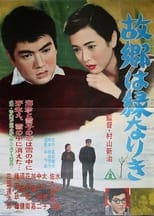
Title: Fateful Birthplace
Released: September 6, 1961
Type: Movie
A sad love story between young Umihiko Kojima and a beautiful girl named Yukiko Shino.

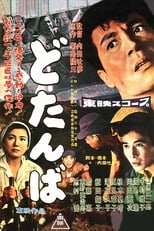
Title: The Eleventh Hour
Character: Kaichi Yui
Released: November 24, 1957
Type: Movie
Based on a 1956 television feature on Japan’s national network, NHK, this is one of Uchida’s rarest films. A socially conscious drama with a contemporary backdrop, Dotanba focuses on the attempts to rescue a group of trapped miners. The title is a figure of speech — (essentially “last minute” or “eleventh hour”) — that refers to a situation of peril. The film boasts a script co-written by Uchida and Akira Kurosawa’s frequent screenwriter, Shinobu Hashimoto, and stars Kurosawa’s frequent star Takashi Shimura.


Title: Murder on The Last Train
Released: June 21, 1955
Type: Movie
One of the earliest Japanese cop films following a mysterious killing on the last train to Mitaka, Tokyo.

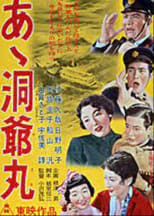

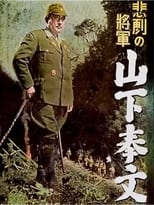
Title: 悲劇の将軍 山下奉文
Released: April 29, 1953
Type: Movie
When Japan entered into the great tragedy that was unforgettable, the general general of the history of the Ming Dynasty, hokudai Yamashita, left the Malay front and occupied Singapore at once, and was praised as a "Malay tiger." However, the situation in Japan changed steadily by the failure of Sai pan from the GA Talca translation.

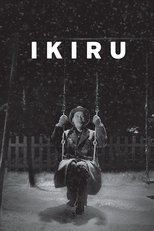
Title: Ikiru
Character: Worker in Sewage Section
Released: October 9, 1952
Type: Movie
Kanji Watanabe is a middle-aged man who has worked in the same monotonous bureaucratic position for decades. Learning he has cancer, he starts to look for the meaning of his life.



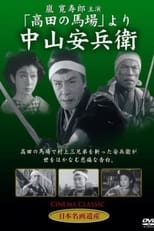
Title: Yasubei Nakayama
Released: March 31, 1951
Type: Movie
Jidai-geki about the life of Yasubei Nakayama, a famous ronin who did participate in the revenge against Lord Kira Yoshinaka as detailed in Japan's famous epic Chushingura

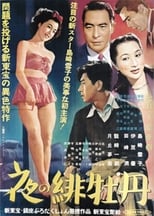
Title: Red Peony of Night
Released: December 8, 1950
Type: Movie
A romantic melodrama about the shifting relationship between Ryosuke and Miki as their precarious employment and social circumstances shift around them.

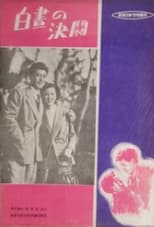
Title: Duel in the Sun
Character: Head teacher
Released: March 7, 1950
Type: Movie
A film by Kiyoshi Saeki

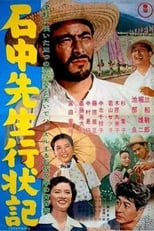
Title: Conduct Report on Professor Ishinaka
Released: January 22, 1950
Type: Movie
Three humorous love stories set in rural Japan.


Title: Enoken's Singing Detective Story
Released: December 31, 1948
Type: Movie
A modern take on history with songs and comedy presented by Enoken (as Gonza), Fujiyama (as Sukeju), and Kasagi (Gonza’s wife Osaki).

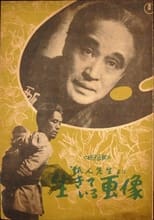
Title: Living Image
Released: October 12, 1948
Type: Movie
A film dealing with the comings and goings of individuals in the immediate postwar period.

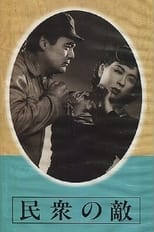
Title: An Enemy of the People
Released: April 25, 1946
Type: Movie
Tadashi Imai 1946 movie

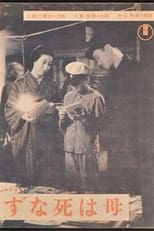
Title: Mother Never Dies
Released: September 24, 1942
Type: Movie
The premature death of a young mother serves as inspiration for her husband and son.

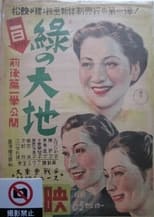
Title: Green Earth
Released: April 1, 1942
Type: Movie
Set in Qingdao, China, a Japanese company locates an office there and begins work and cooperation with a local Chinese company for business. Many Japanese engineers also move to China, with their families, for the company in order to construct a canal. There are young Chinese resisting the Japanese in this area.

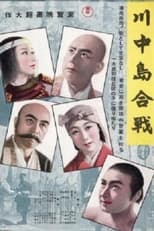
Title: The Battle of Kawanakajima
Character: Tangonokami Shizawa
Released: November 30, 1941
Type: Movie
This epic depicts the battle between Uesugi Kenshin and Takeda Shingen. The focus of the story is the struggle by the unit leader in charge of the main supply wagons and the supply troops to transport materiel to the Uesugi army. To this are added episodes involving an itinerant woman.

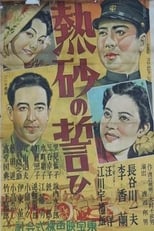
Title: Oath on the Burning Sands
Released: December 25, 1940
Type: Movie
A Japanese army engineer (Hasegawa) on the mainland must put his personal feelings for a beautiful Chinese woman (Ri) aside if he is to succeed at building a highway through the "bandit"- (aka anti-Japanese militia-) infested hinterlands.

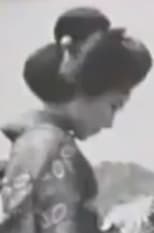
Title: Flowers Blooming In the Storm
Released: July 3, 1940
Type: Movie
Jidaigeki from 1940

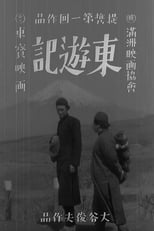
Title: Toyuki
Character: Cosmetics' Company President
Released: February 7, 1940
Type: Movie
Shot mostly in Tokyo, this comedy depicts two Chinese tourists who have travelled from their country to Japan in order to experience the latter country.


Title: Enoken's Yaji and Kita
Released: December 29, 1939
Type: Movie
Enoken's anachronistic take on the beloved (and already very funny) Edo-period novel "Shank's Mare," aka Tōkaidōchū Hizakurige, in which Yaji and Kita, two plebeian nobodies, have all sorts of strange and colorful encounters on the long road from Edo to Kyoto.


Title: Song of the White Orchid
Released: November 30, 1939
Type: Movie
Song of the White Orchid was a co-production of Toho and Mantetsu, the railway that served the colonial region of Manchuria, and the first film in the Kazuo Hasegawa/Shirley Yamaguchi (Ri Koran) “Continental Trilogy.” Handsome Hasegawa (representing Japan) runs up against an impertinent Yamaguchi (representing the continent); not surprisingly, in the course of the film the woman comes around and realizes the benevolent intentions of the Japanese. In Song of the White Orchid Yamaguchi leaves Hasegawa, who plays an expatriate working for the railway, because of a misunderstanding. She joins a communist guerilla group plotting to blow up the Manchurian railway. Learning of the subterfuge that led to the misunderstanding, she renews her faith in Hasegawa—and by extension Japan—and tries to undermine the plot.


Title: The Kingdom of Spectacles
Released: June 1, 1937
Type: Movie
Hide-chan (Hideko Takamine) and her family are on a trip to Tokyo. While visiting a fairground, a pickpocket (Kamatari Furukawa) steals the father's wallet. While everyone is trying to hunt down the thief, Hide-chan decides to make the most of it and enjoy her stay, while the thief and his main pursuer (Akira Kishii) play hide-and-seek among the funfair's spectacles and freakshows

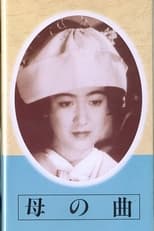

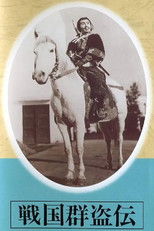
Title: Saga of the Vagabonds, Part Two: Forward at Dawn
Released: February 20, 1937
Type: Movie
Story of a bandit king part 2.

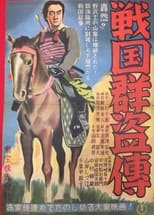
Title: A Tale of Thieves in War Time: Part 1 - Tiger and Wolf
Released: February 11, 1937
Type: Movie
Story of a bandit king.

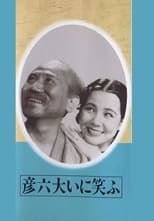
Title: Hikoroku Laughs a lot
Released: November 12, 1936
Type: Movie
Hikoroku Laughs a lot


Title: The Scent of Pheasant’s Eye: An Episode from the Tales of Flowers
Character: Schoolmaster
Released: March 7, 1935
Type: Movie
When Kaoru's sister-in-law Miyoko arrives at the family home, tender feelings start to grow between the two. However, the initial happiness that Kaoru finds in the company of her beautiful sister-in-law is frustrated by her brother Mitsuo, Miyoko's husband, who intervenes in their budding passion. Full of unspoken words, deeply suggestive mise-en-scène, and forbidden glances, Fukujuso is a compelling melodrama that surprises us with its potent homoeroticism, especially considering its year of production.

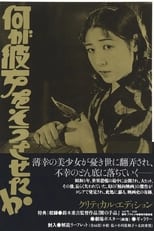
Title: What Made Her Do It?
Character: Sahei Sakamoto
Released: February 6, 1930
Type: Movie
The unfortunate Sumiko is sent from place to place: to live with her alcoholic uncle, then sold to the circus, then adopted by a wealthy family, and finally sent to a Christian orphanage.
